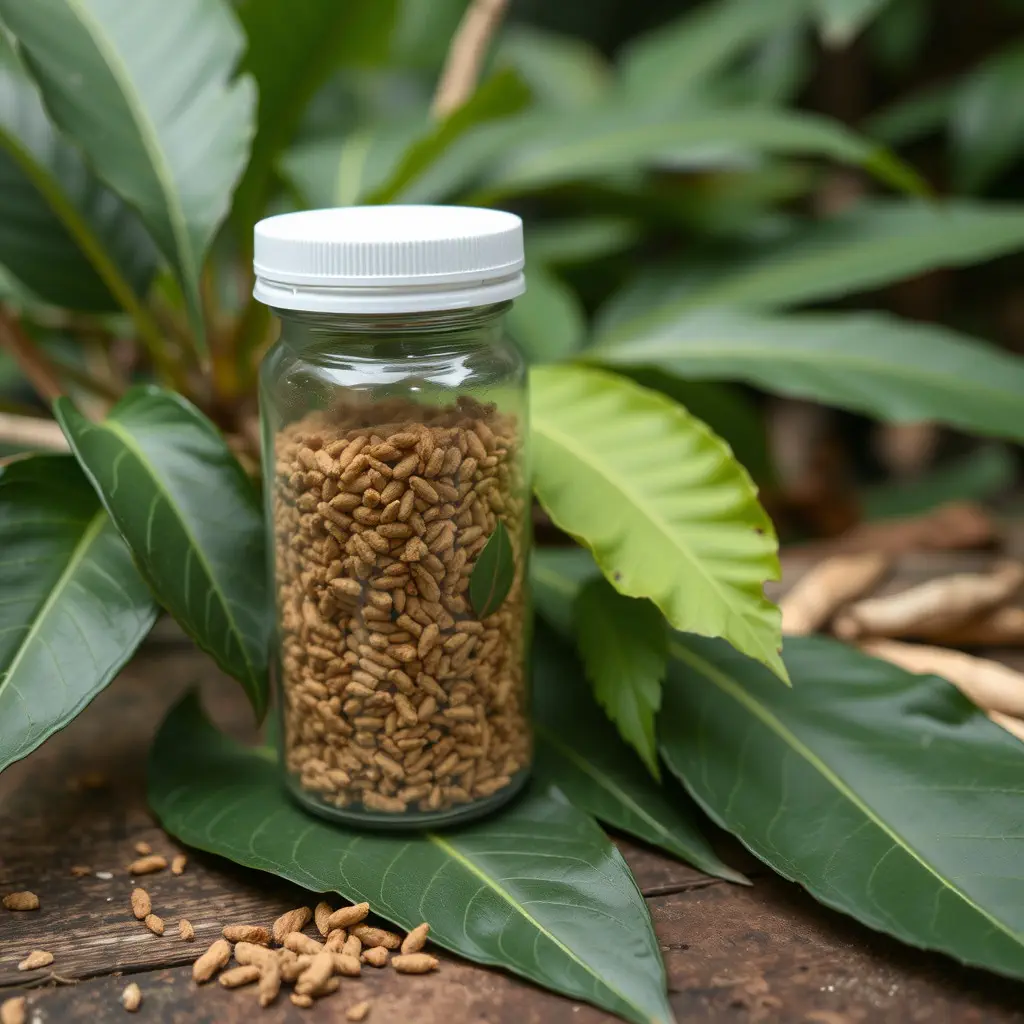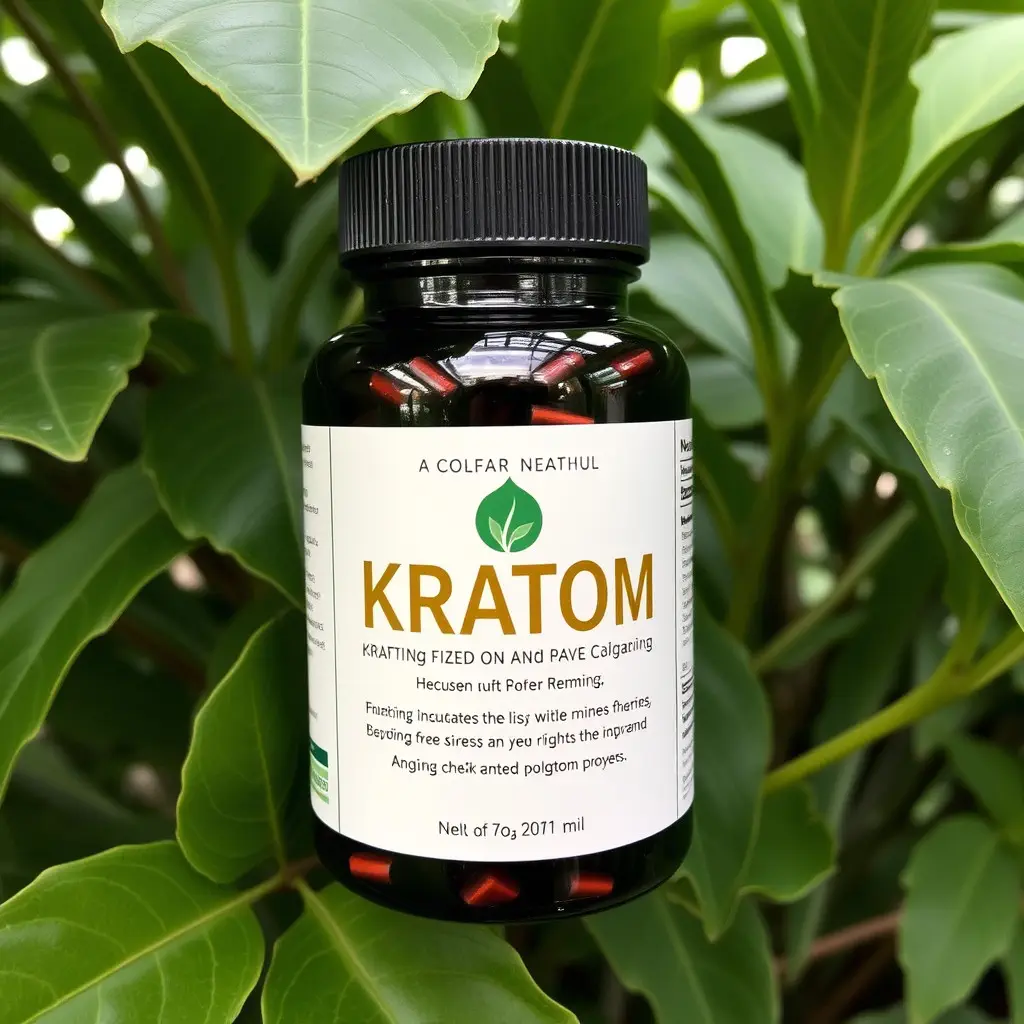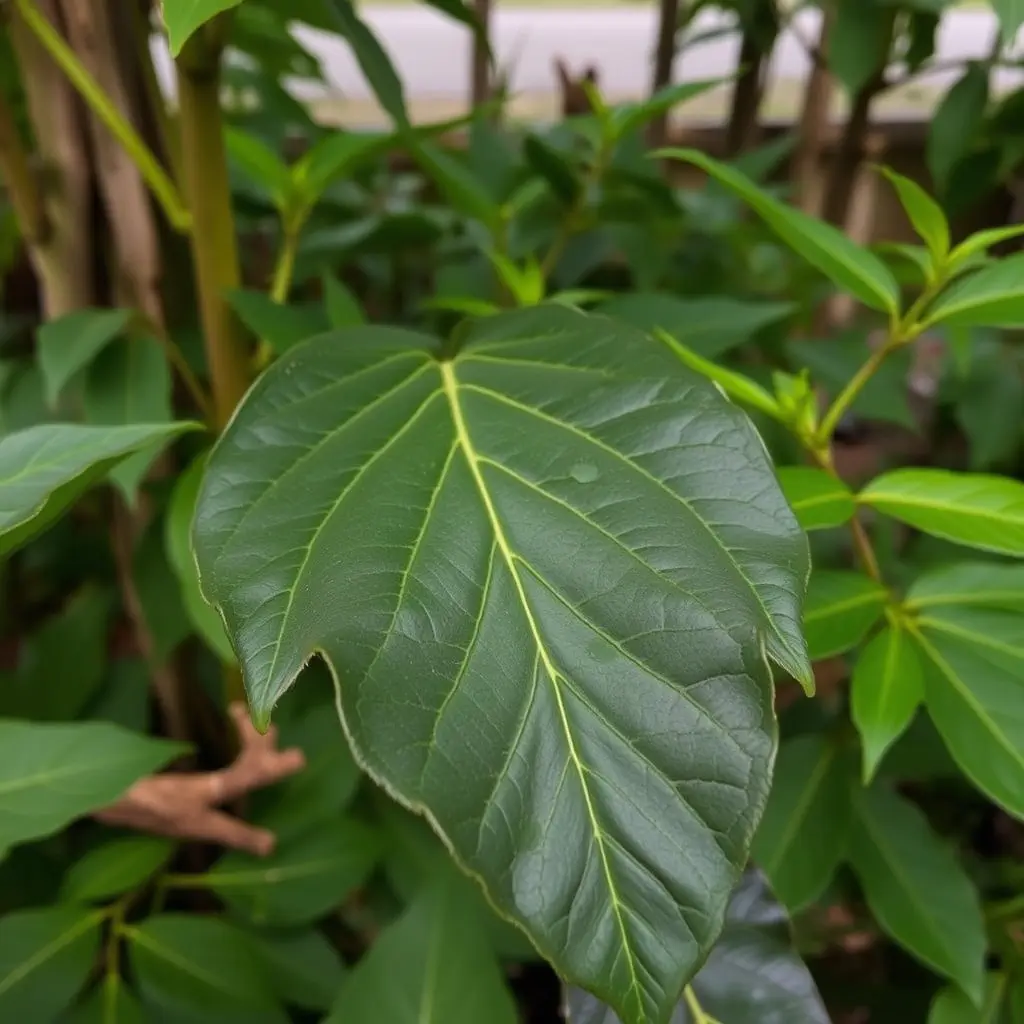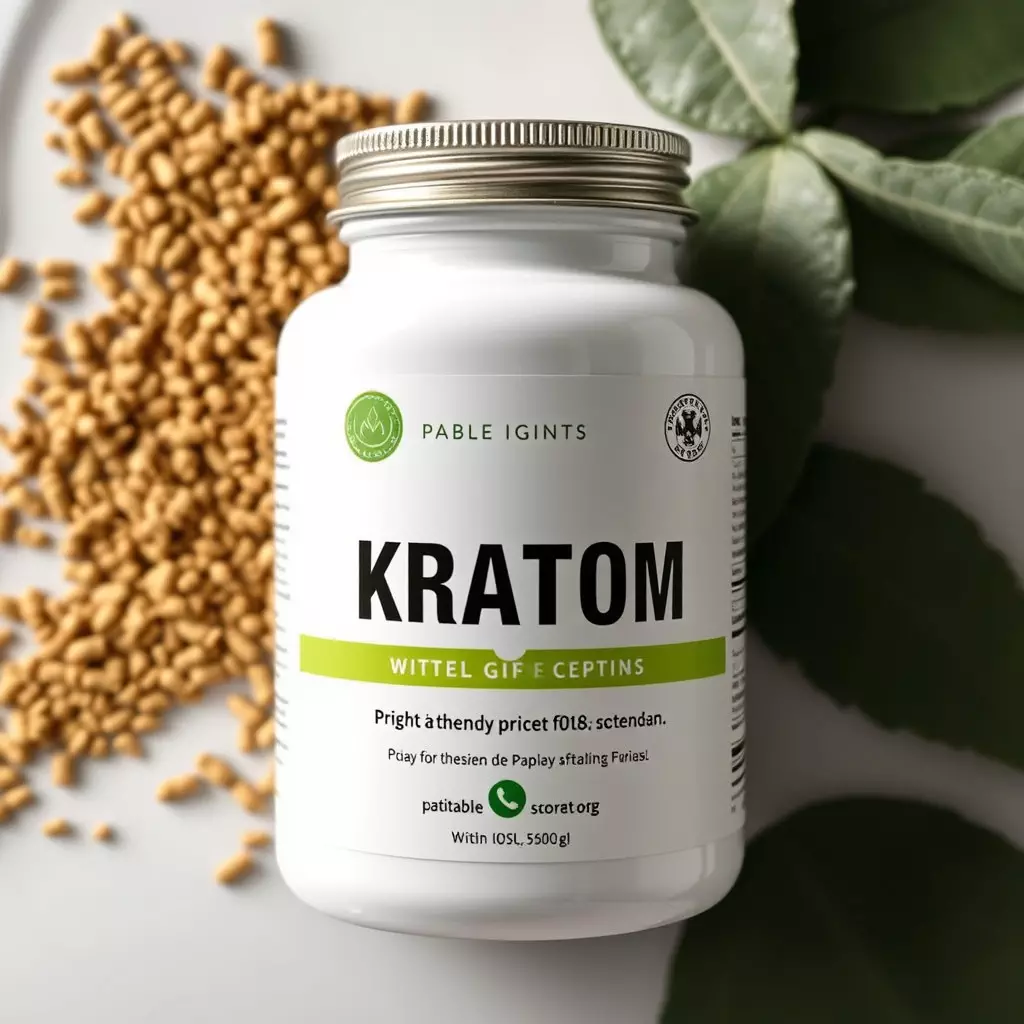Kratom, derived from a Southeast Asian tree, has gained attention for its potential mood-enhancing properties. The alkaloids mitragynine and 7-hydroxymitragynine found in its leaves are believed to interact with the brain's neurotransmitters like serotonin and dopamine, which may contribute to improved emotional states, including enhanced well-being, euphoria, and reduced anxiety. Its analgesic effects also offer benefits for managing chronic pain, which can affect mood and stress levels. While kratom shows promise in promoting resilience and emotional balance, its use should be approached with caution due to individual variation in responses and the lack of comprehensive research on long-term effects. It is essential to consider professional guidance when exploring mood enhancement with kratom to ensure informed and safe usage as part of a holistic health regimen that includes nutrition, exercise, sleep, and mindfulness. This approach can potentially harness the body's natural ability to maintain emotional equilibrium and cope with life's challenges.
Exploring the intersection of natural supplements and mental health, this article sheds light on the potential benefits of Kratom in fostering emotional well-being and resilience. We delve into how Kratom may contribute to mood enhancement with kratom, elucidating its mechanisms for emotional support. Furthermore, we discuss the integration of Kratom within a comprehensive, holistic approach to maintaining mental health balance. Join us as we navigate the complex relationship between Kratom and emotional health.
- Unveiling the Role of Kratom in Mood Enhancement and Resilience Building
- Understanding Kratom's Mechanisms for Emotional Well-being
- Integrating Kratom into a Holistic Approach for Emotional Health
Unveiling the Role of Kratom in Mood Enhancement and Resilience Building

Kratom, a tropical evergreen tree native to Southeast Asia, has garnered attention for its potential impact on mood enhancement and resilience building. Its leaves contain alkaloids, chiefly mitragynine and 7-hydroxymitragynine, which are believed to influence the brain’s neurotransmitters, such as serotonin and dopamine, pivotal in regulating mood. Preliminary research suggests that kratom may offer a modulatory effect on emotional states, contributing to an improved sense of well-being. Users often report feelings of euphoria and reduced anxiety, which can be beneficial for individuals experiencing low mood or stress. Moreover, the analgesic properties of kratom contribute to its role in alleviating chronic pain, a common source of distress that can affect emotional health.
Incorporating kratom into a holistic wellness regimen may also play a role in building resilience. Resilience is the capacity to recover from difficulties or adapt to significant sources of stress. By potentially enhancing coping mechanisms and providing a sense of calm, kratom might aid individuals in facing life’s challenges more effectively. It’s important to approach the use of kratom with caution, as it can have varying effects depending on dosage, strain, and individual physiology. Additionally, due to the complexity of mental health and the interplay of various factors, any use of kratom for mood enhancement or resilience building should be under professional guidance, ensuring safe and informed practice. Users contemplating kratom as part of their wellness strategy are advised to consult healthcare professionals to navigate its potential benefits and risks responsibly.
Understanding Kratom's Mechanisms for Emotional Well-being

Kratom, a tropical tree native to Southeast Asia, has garnered attention for its potential impact on emotional well-being and resilience. The mechanisms by which kratom exerts mood-enhancing effects are multifaceted, primarily involving the interaction with the brain’s opioid receptors. Mitragynine and 7-hydroxymitragynine, two main alkaloids found in kratom, bind to mu-opioid receptors, which can influence mood regulation and produce feelings of euphoria and well-being. This interaction is thought to be responsible for the reported mood enhancement with kratom, offering a potential natural alternative for individuals seeking relief from mild depressive symptoms or stress. Beyond opioid receptors, kratom’s action on other neurotransmitter systems also plays a role. It modulates the release of neurotransmitters like serotonin and norepinephrine, which are pivotal in regulating mood and emotional responses. These effects can help individuals maintain a balanced emotional state, fostering resilience against psychological stressors. However, it is crucial to approach kratom with caution, as its effects can vary significantly among users, and the long-term impact on mental health requires further study. Users are advised to consult healthcare professionals before incorporating kratom into their wellness routine, ensuring safe and informed use.
Integrating Kratom into a Holistic Approach for Emotional Health

Kratom, a tropical evergreen tree native to Southeast Asia, has garnered attention in holistic health circles for its potential impact on emotional well-being and resilience. Users often report mood enhancement with kratom, attributing this to its alkaloid content, primarily mitragynine and 7-hydroxymitragynine, which can influence the brain’s neurotransmitters, potentially leading to improved mood and a sense of calm. The integration of kratom into a holistic approach for emotional health is multifaceted, considering its complex pharmacological profile. Advocates suggest that when used responsibly as part of a balanced regimen, it may offer support in managing stress and enhancing overall mental clarity. It’s important to approach the use of kratom with caution, as individual responses can vary significantly. A well-rounded holistic strategy includes proper diet, exercise, adequate sleep, mindfulness practices, and possibly the judicious use of kratom to synergistically foster a healthy emotional landscape. This integrative approach recognizes the importance of supporting the body’s natural ability to adapt to life’s challenges, thereby cultivating resilience and emotional equilibrium.
Mood enhancement with kratom has emerged as a significant area of interest within the realm of emotional well-being and resilience. The article elucidates how kratom’s unique mechanisms contribute to improved mood and foster resilience. By integrating kratom into a comprehensive, holistic approach for emotional health, individuals may experience heightened psychological fortitude alongside an enhanced sense of emotional equilibrium. It is clear that further research is warranted to fully understand the potential benefits and appropriate dosages of kratom for mood enhancement and its role in building resilience. As such, this article provides valuable insights into the transformative impact of kratom on emotional health, advocating for careful consideration in personal wellness regimens and responsible scientific exploration.






